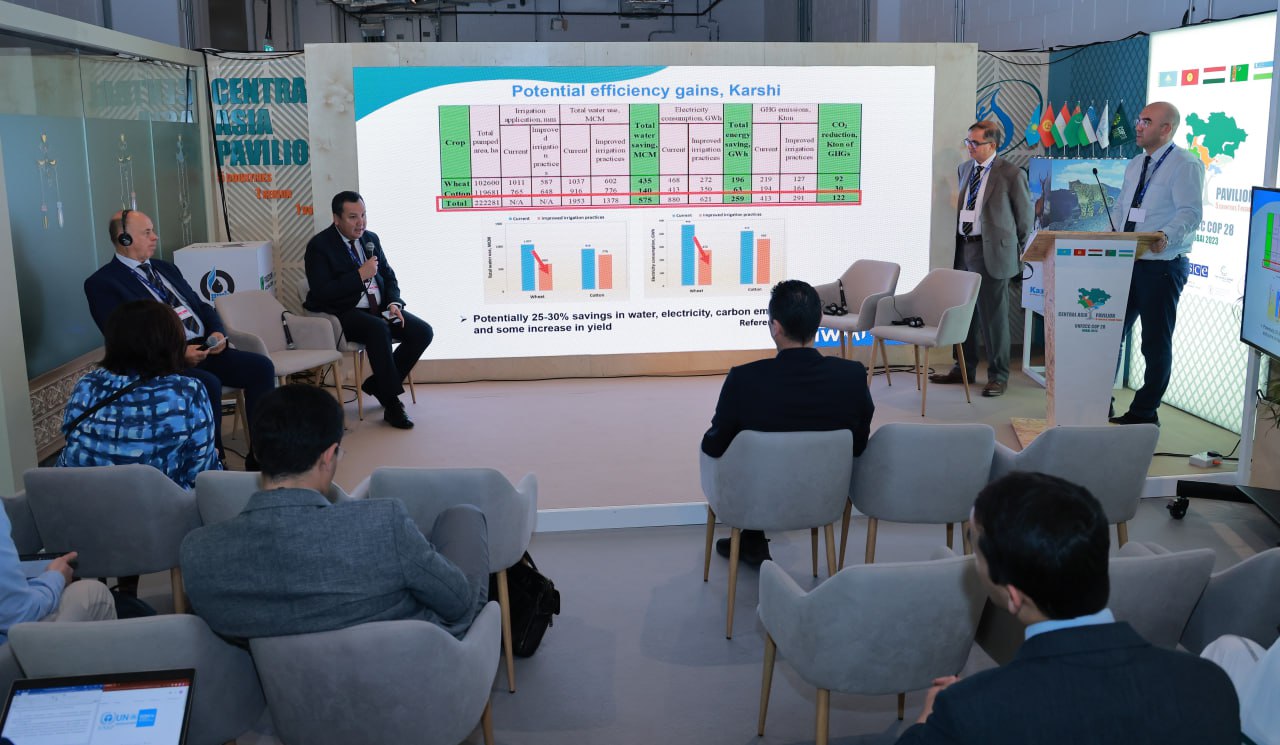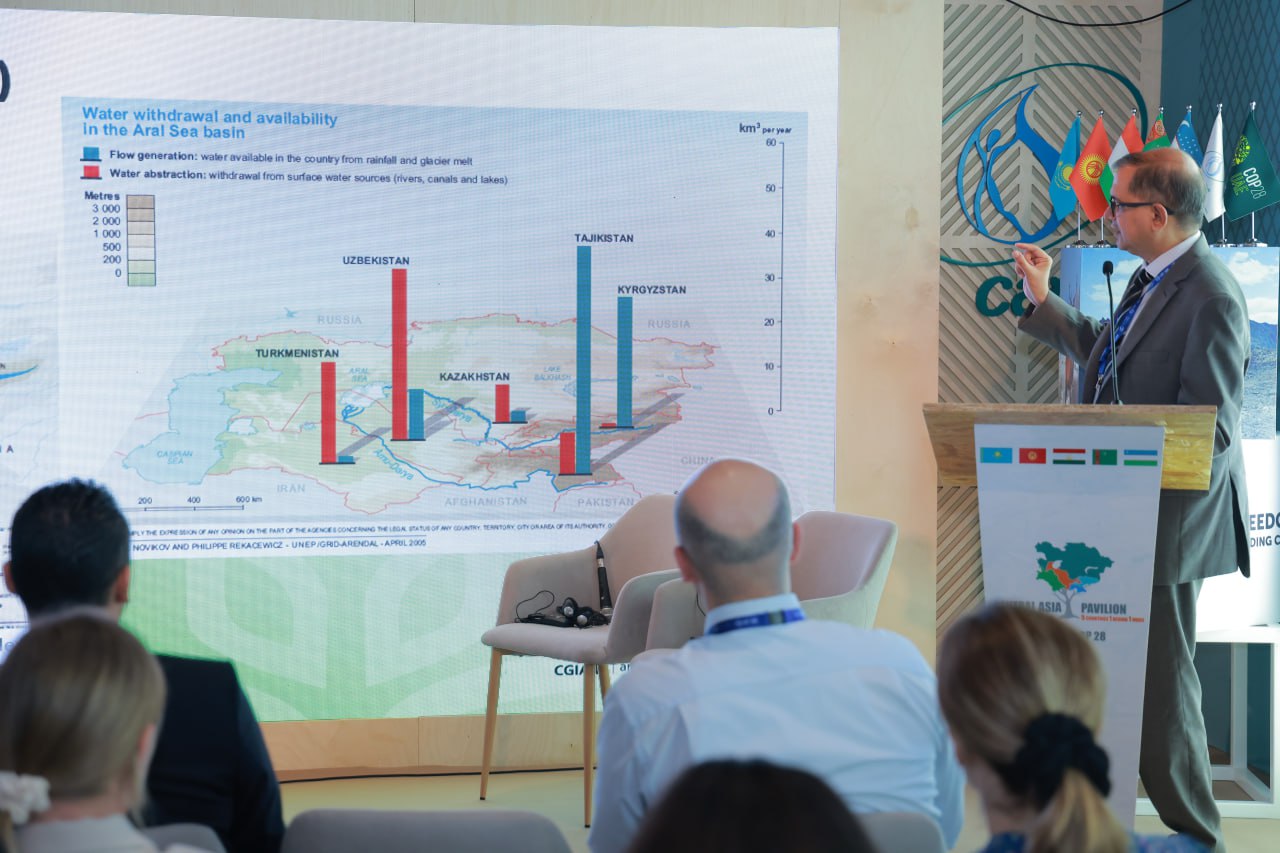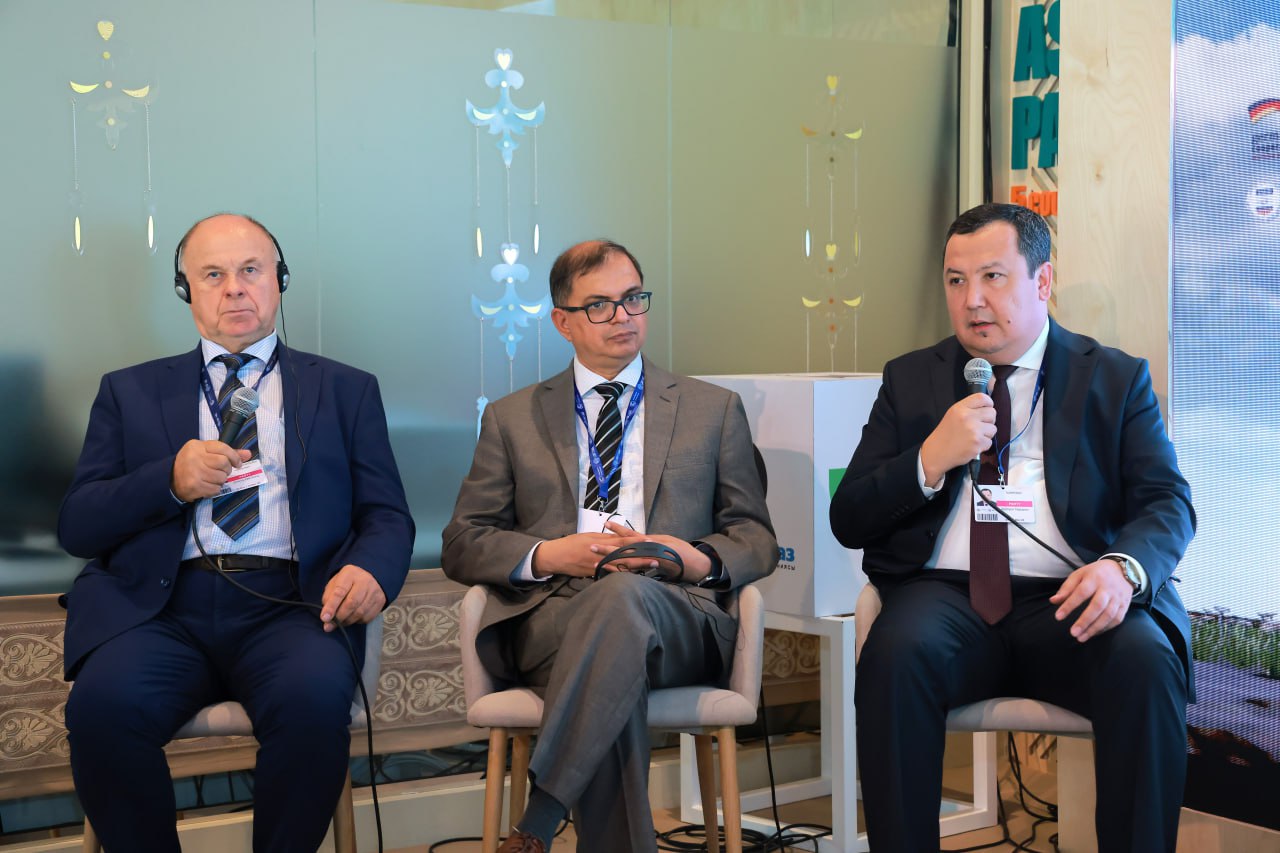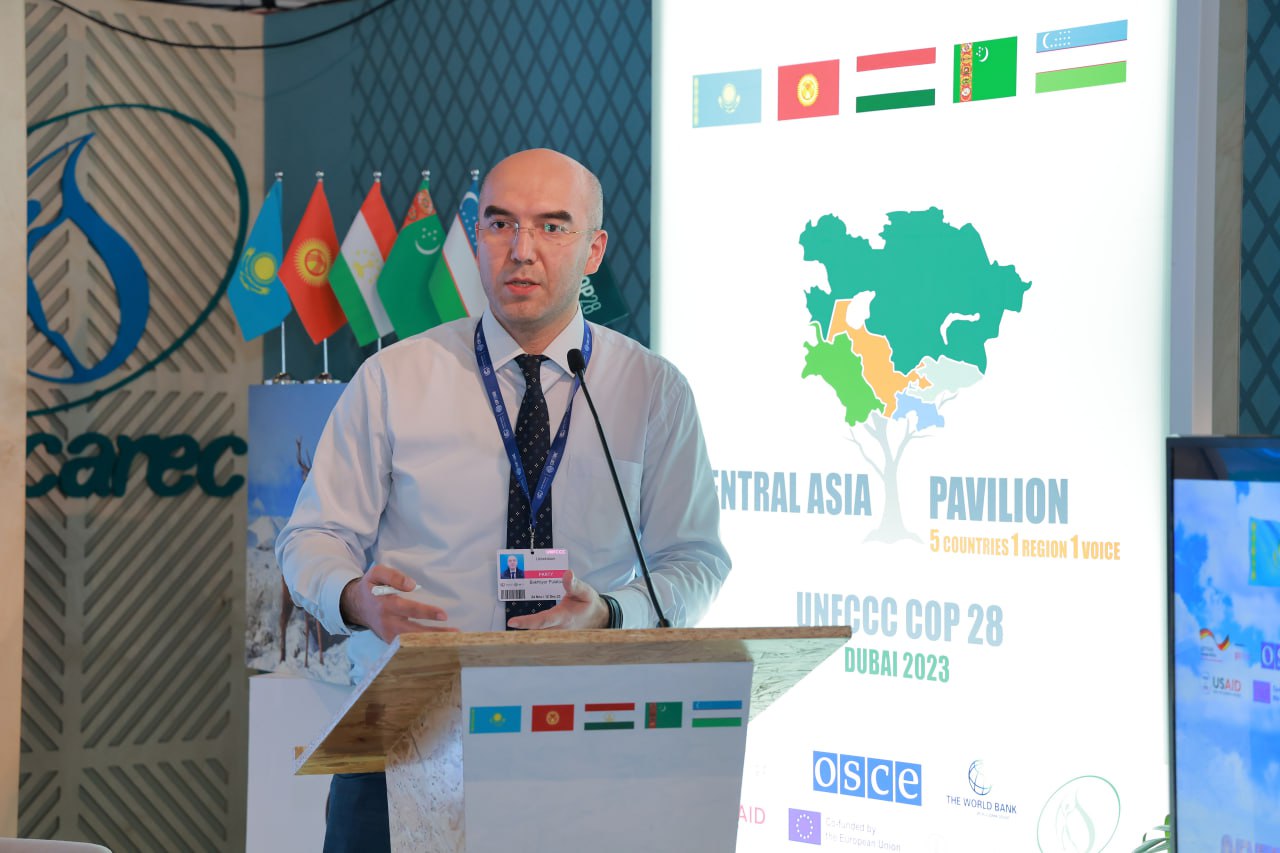
A panel session on "Water, Energy, Food Security, and Integration" took place in Dubai. The event was held as part of the 28th United Nations Climate Change Conference (COP28) in the UAE.
The speakers of the event included Dr. Mohsin Hafeez, the regional representative of the International Water Management Institute (IWMI) in Central Asia; Ashraf Abushadi, Senior Advisor on Digital Transformation and Artificial Intelligence at the United Nations Industrial Development Organization (UNIDO); Fred F. Hattermann, Head of the Climate Resilience Working Group at the Potsdam Institute for Climate Impact Research (PIK); Evetta Zhenina, an expert on natural resources from the Food and Agriculture Organization of the United Nations (FAO); Bekzod Jalilov, a representative from the Asian Development Bank (ADB); Azim Nazarov, the First Deputy Minister of Agriculture of the Republic of Uzbekistan; Bakhtiyor Pulatov, the Director of the Institute of Environment and Nature Protection Technologies at the Ministry of Ecology, Environmental Protection, and Climate Change of the Republic of Uzbekistan; and Zinoviy Novitskiy, Doctor of Agricultural Sciences, Academician, Head of the Aral Sea Greening Project .



During the event, speakers presented their views on topics such as "How Central Asian countries can integrate the Nexus approach into their political planning for climate change adaptation and mitigation," "Deployment of smart technologies for climate change adaptation in the Aral Sea region," "Climate change in Central Asia: patterns and forecasts," "FAO: Impact of climate change on agriculture, water resources, and energy in Central Asia," and others.
It is worth noting that the roundtable discussion focused on the role of modern sustainable natural resource management systems in the region, where the interconnected interests of different countries require coordinated efforts. The discussions examined strategies for integrating the national policies of Central Asian countries.
The aim of the event was to discuss the «WEFE nexus»in Central Asia and strengthen cross-border cooperation and knowledge exchange.
For reference, WEFE (water, energy, food, and environment) in English stands for water, energy, food, and the environment. Nexus literally means "connection." Implementing the WEFE Nexus approach can help alleviate the problem of vital resource scarcity.
During the event, it was noted that Central Asian countries are actively working on regional cooperation in managing transboundary water resources. Moreover, the republics collaborate in the development of renewable energy sources and sustainable agricultural strategies to enhance food and energy security in the face of climate change. By integrating national strategies, the region can directly improve the well-being of people and the environment while reducing conflicts over resources.
The session featured presentations on successful campaigns in this field, and a dialogue was organized on topics such as "Enhancing food security through agricultural innovations and sustainable land use," "Reducing environmental risks and managing the consequences of climate change," and "Strengthening cross-border cooperation and integration among Central Asian countries for sustainable development."
At the end of the event, participants were informed about Uzbekistan's contribution to food systems, land restoration, and climate adaptation. It is expected that participation in this conference will contribute to strengthening cooperation with international development partners in implementing more effective strategies in the areas of climate change, food security, and sustainable land management.











